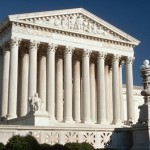 The U.S. Supreme Court has resolved a split in the circuits on the U.S. tax treatment of U.K. windfall tax payments made by U.S. utilities. In a unanimous opinion authored by Justice Thomas, the Court held that the windfall tax qualified as a “creditable tax” for U.S. foreign tax credit purposes. The result is that the appellant here, PPL, and Entergy, who had the companion case, will be able to take a credit against their U.S. income taxes for the amounts paid to the United Kingdom.
The U.S. Supreme Court has resolved a split in the circuits on the U.S. tax treatment of U.K. windfall tax payments made by U.S. utilities. In a unanimous opinion authored by Justice Thomas, the Court held that the windfall tax qualified as a “creditable tax” for U.S. foreign tax credit purposes. The result is that the appellant here, PPL, and Entergy, who had the companion case, will be able to take a credit against their U.S. income taxes for the amounts paid to the United Kingdom.
The central issue was whether the U.K. tax was a tax on income, the general standard for creditable foreign taxes. The ultimate decision was a bit more nuanced and scholars surely will continue to debate the issue including the algebra (don’t see that often in the tax world) and the potential distinction between the regulatory phrase “in the U.S. sense” and Justice Thomas’ phrase “if enacted in the U.S.”
Practitioners, being the practical folks that they are, will look to expand the decision for the benefit of other clients that may have paid taxes similar to the windfall tax but not received the benefit of foreign tax credits against their U.S. income.
This is what happens when the Supreme Court issues a tax opinion. There will be more to come, as the estate tax case that may decide the fate of DOMA has been heard and likely will be decided this year and another tax case (on overpayment penalties) is being briefed for the Supremes right now. Expect a decision in the latter case, U.S. v. Woods, sometime in 2014.
Read the PPL opinion here:
PPL Corp. v. Commissioner, Docket No. 12-43 (U.S.S.C. May 20, 2013)


